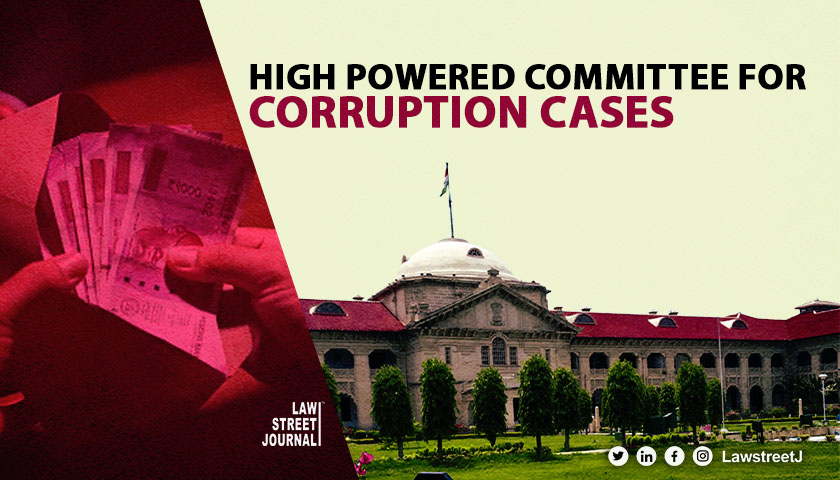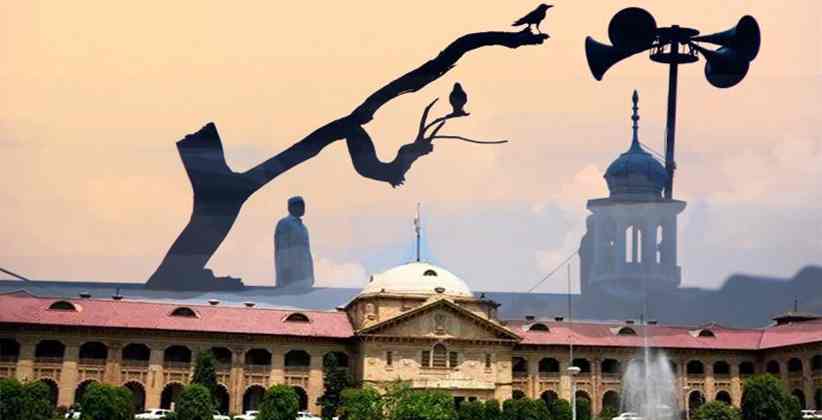The Allahabad High Court has directed the Uttar Pradesh government to set up a high-powered committee headed by Chief Secretary to develop comprehensive and well-structured guidelines, preferably within three months and not beyond a period of six months in any case, for continuous and consistent monitoring and ensuring expeditious completion of investigations in all corruption cases involving public servants.
A division bench of Justice Vinod Diwakar and Justice Vivek Kumar Birla directed all Commissioners of Police/Senior Superintendent of Police/Superintendent of Police from all districts to provide a list of FIRs that have been registered on behalf of government departments. This list shall include the date of registration of FIR, the time and place of the incident, the name of the complainant, and the names of the suspects/accused persons.
Additionally, a brief overview of the progress made in the investigations conducted thus far should be included. This information must be submitted within one month from the date of receiving a copy of this order to the Chief Secretary's office. This quantifiable data collected from all police stations be used to formulate comprehensive guidelines, it ordered.
The Court dismissed petitions filed by Vinod Kumar, Smt Pushpa Devi, Manish Kumar Singh, Sanjay Kumar, and Jawahar Lal against the an FIR lodged on August 19, 2023 on the charges preparation of forged muster rolls, violations of guidelines in executing the work for constructing Amrit Sarovar under the MNREGA at a village in Jaunpur's Sujanganj, the release of funds without according proper sanction, and alleged illegal gains by the petitioners in collusion with each other.
"Upon hearing both parties and examination of the reports, it is evident that the Project Director conducted an inquiry before the registration of the impugned FIR against the petitioners. There are allegation against all petitioners for creation of forged and fabricated documents to misappropriate of an amount of Rs 15,57,790, causing a financial loss to the public exchequer. A plain reading of the impugned FIR's contents indicates a prima facie commission of a cognizable offences at its face value against the petitioners. At the first instance, the allegations are of creating forged documents for approval, violating rules in the execution of work, and releasing funds without proper authorization make sense," the bench said.
The bench said corruption by public officers in the execution of schemes for rural development in India, particularly in the context of a programme like MGNREGA, has significant effects on the intended outcomes and the well-being of the rural population. The central idea of giving work to the labourer is to create employment with the intended objectives of poverty alleviation and rural infrastructure development. The corrupt officials who engage in fraudulent activities make it difficult to trace the flow of funds and resources if investigations are delayed, it said.
The court directed the Investigating Officer to conduct a prompt investigation in the interest of States policy dealing in corruption cases.
"Corruption in such schemes erodes the trust of the rural population in government institutions and schemes. When people perceive that these programs are riddled with corruption, they may become less willing to participate, reducing the effectiveness of these initiatives desired outcome may not be achieved," the bench said.
Highlighting the need for speedy investigation, the bench said though it is neither advisable nor feasible to prescribe any mandatory outer time limit, and the Court may only examine the effect of delay in every individual case on the anvil of Article 21 of the Constitution, there is certainly a need to address these issues by way of an in-house mechanism to ensure that there is no undue delay in completing the investigation.
Referring to UP Police Regulations which stressed at the need for speedy investigation, the bench said, "There is no specific stipulated timeframe for the investigation of criminal cases. However, prolonged investigations can potentially undermine the rule of law, particularly in cases involving government officers who are entrusted with the responsibility of carrying out their official duties diligently honestly and fearlessly, yet have been found to be involved in widespread corruption. Therefore, there is a compelling need to establish a clear timeline for the completion of investigations to uphold the principles enshrined in Article 21 of the Constitution."
The court pointed out following registration of the FIR by the government department, the investigations often linger for years, affording the accused the chance to tamper with the evidence or providing opportunities for the accused/ suspects to obstruct the course of justice. Work efficiency and work culture also adversely affect in the government department because of long pending investigations.
"The consequences of delay in the investigation may lead to loss of evidence, injustice to the victim, increased costs, public distrust; suspects may have the opportunity to commit repeated crimes, to more individuals at least, excessive pre-trial detention, injustice to victims and may also compromise the fairness of the trial. In essence, expeditious and effective police investigations are essential for safeguarding society, ensuring justice, and upholding principles of natural justice. Therefore, efforts to improve the efficiency of investigation and reduce delays are crucial for maintaining the integrity and effectiveness of administration of the criminal justice system," the bench said.







!["No Loudspeakers For Azan, No Fundamental Right To Create Noise," Says Allahabad HC To Two Mosques [Read Judgment]](/secure/uploads/2020/01/lj_4995_Allahabad_HC_AZAN.jpg)






